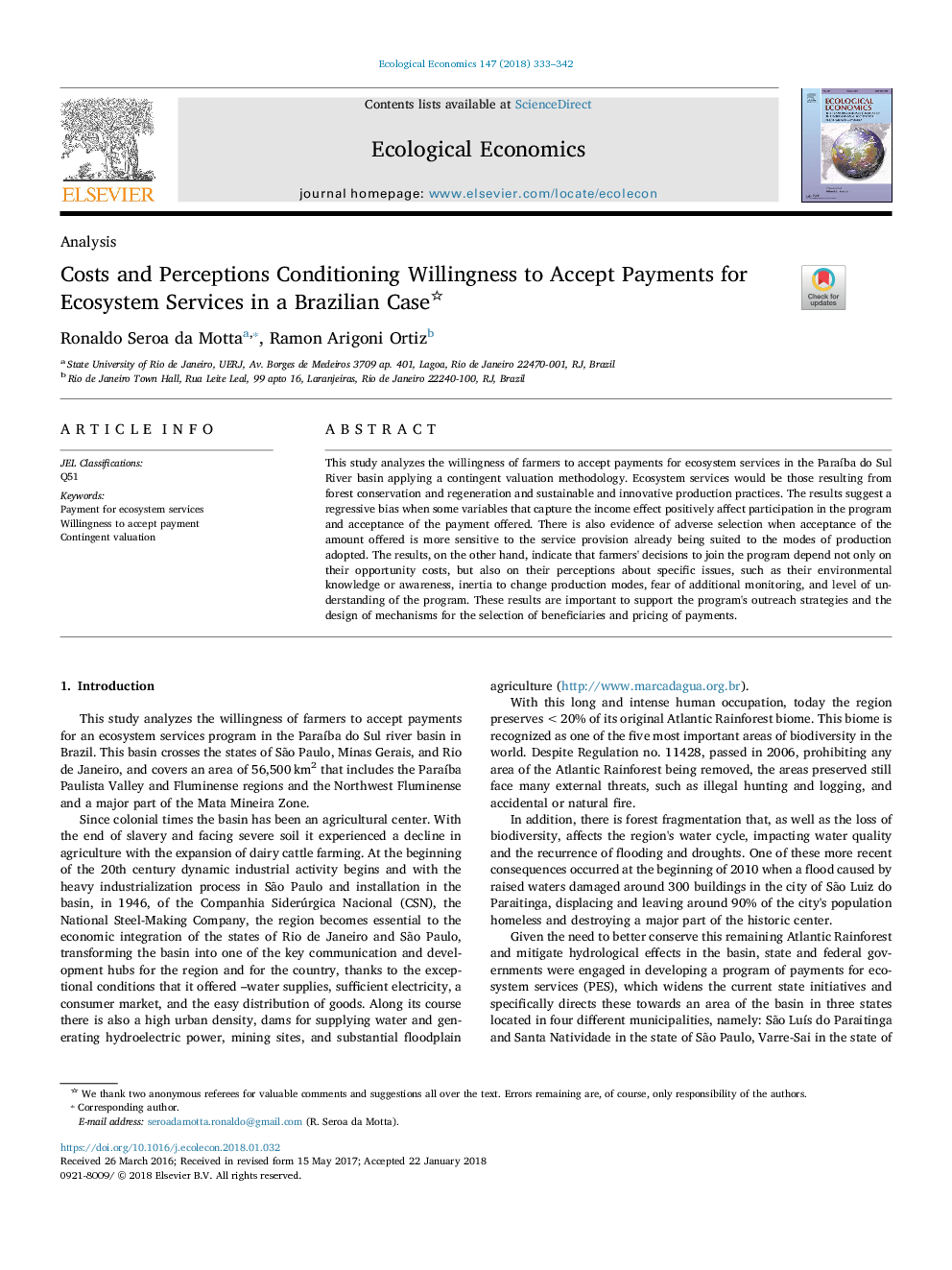ترجمه فارسی عنوان مقاله
آمادگی برای تجزیه و تحلیل و درک شرایط آمادگی برای پرداخت هزینه خدمات اکوسیستم در یک پرونده برزیل
عنوان انگلیسی
AnalysisCosts and Perceptions Conditioning Willingness to Accept Payments for Ecosystem Services in a Brazilian Case
| کد مقاله | سال انتشار | تعداد صفحات مقاله انگلیسی |
|---|---|---|
| 161895 | 2018 | 10 صفحه PDF |
منبع

Publisher : Elsevier - Science Direct (الزویر - ساینس دایرکت)
Journal : Ecological Economics, Volume 147, May 2018, Pages 333-342
ترجمه چکیده
این مطالعه، تمایل کشاورزان برای پذیرش پرداخت هزینه خدمات اکوسیستم در حوضه رودخانه «پاراآباد» را بررسی می کند و از روش ارزیابی احتمالی استفاده می کند. خدمات اکوسیستم می تواند نتایج حاصل از حفاظت و بازسازی جنگل و شیوه های تولید پایدار و نوآورانه باشد. نتایج نشان می دهد که تعصب رگرسیون زمانی که برخی از متغیرهایی که اثر درآمد را در بر می گیرند، بر مشارکت در برنامه و پذیرش پرداخت ارائه شده تأثیر مثبت خواهد داشت. شواهدی از انتخاب نامطلوب وجود دارد که پذیرش مقدار ارائه شده حساسیت بیشتری نسبت به خدمات ارائه شده است که در حال حاضر با شیوه های تصویب پذیر مناسب است. از سوی دیگر، نتایج نشان می دهد که تصمیم کشاورزان برای پیوستن به برنامه بستگی دارد نه تنها به هزینه فرصت های خود، بلکه همچنین بر ادراکات آنها در مورد مسائل خاص مانند دانش و آگاهی زیست محیطی، عدم نفوذ به تغییر حالت تولید، ترس از نظارت اضافی و سطح درک از برنامه. این نتایج برای حمایت از استراتژی های برنامه ریزی و طراحی مکانیسم های انتخاب ذینفعان و قیمت گذاری پرداخت ها اهمیت دارد.

